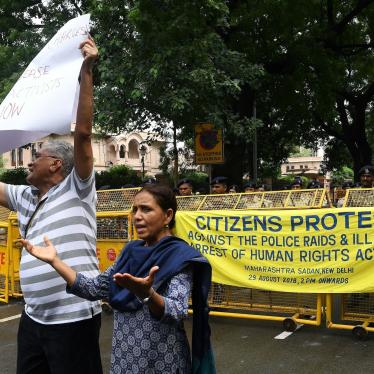HONG KONG — Does the law matter in China? A cursory look at the two crises that have hit the Chinese government in recent weeks — one at the very top, with the purge of Bo Xilai, and one at the grassroots, with the escape from unlawful house arrest of the blind activist Chen Guangcheng — suggests not.
The two cases have in common an overt and blatant disregard for legality, an unwillingness of the central government to correct manifest injustices, and the notion that only U.S. diplomatic compounds are safe-havens in China.
Bo, the maverick princeling, turned a brutal anti-mafia campaign in the southwestern metropolis of Chongqing into an instrument of personal power designed to garner popularity through swift “justice” and to eliminate political rivals. His suspension by the Party’s Central Committee came only after his police chief took refuge in the United States Consulate.
Chen, the dauntless rural activist from Shandong province, had attempted to use the existing legal system to expose wide-ranging abuses of power by local officials, only to be sentenced in 2006 to more than four years in prison on trumped-up charges by a local court. Upon his release in September 2010, local officials and hired thugs unlawfully kept him confined in his home. He too, after dramatically escaping his captors, sought refuge in a U.S. diplomatic enclave.
Both cases are widely seen as emblematic. Bo’s embodies the corruption of an unchecked political elite: Communist Party members are investigated by the party’s own disciplinary committee, and not by the courts. Chen’s case is rife with the predatory behavior of local officials whose conduct is more reminiscent of China’s feudal past than of the “new socialist countryside” Beijing leaders claim to be building.
Yet it would be a mistake to conclude that the law doesn't matter in China.
First, while Chen’s case entails the catalogue of unlawful measures that are used against government critics, it also embodies the rising assertiveness of a citizenry that is increasingly ready to defend its legal rights against official arbitrariness, corruption and injustice.
Land-rights activists, factory workers, forcibly evicted residents, arbitrarily censored netizens, ordinary consumers and environmental activists — citizens in China are increasingly committed to defending their rights.
To overcome the control of local courts by local authorities, Chinese citizens are taking their grievances public, making full use of new media. They are increasingly ready to take their demands to the streets, as witnessed by the rapid growth in the number of social protests over environmental issues, labor disputes, land seizures, abuses of power and corruption. A recent Chinese study estimated that on any given day there are 500 protests across the country.
The common demand of this increasingly assertive citizenry is simple: that the state respect its own laws. Back when the state operated in almost complete secrecy, it could easily resist these demands. It is increasingly difficult to do so with 500 million people online.
As a result, the authorities back down more often than people may suspect. This was the case in late 2011 in the southern village of Wukan, where after a long battle, local citizens managed to oust leaders they suspected of illegal land transactions.
This was also the case after the Wenzhou train-crash in July 2011, where an attempted cover-up prompted a public outcry that compelled Beijing to order a formal investigation and to suspend several officials. It was also the case in Dalian in August 2011, when residents demonstrated to demand the closure of a petrochemical factory that violated environmental and safety regulations. And it is the case in countless labor disputes when workers sue for compensation or violation of labor laws. The list goes on.
Admittedly, such victories come hard. Rights activists and whistle-blowers like Chen have to endure various degrees of police harassment and suppression, and the government remains hostile to the precondition for any reasonably functional legal system: an independent judiciary.
But the fact is that the rule of law has become a central demand of the Chinese citizenry, and grievances are increasingly framed in the language of rights. The law matters.
Nicholas Bequelin is senior researcher on Asia at Human Rights Watch.







